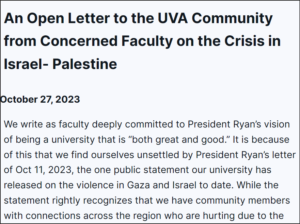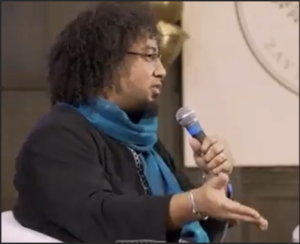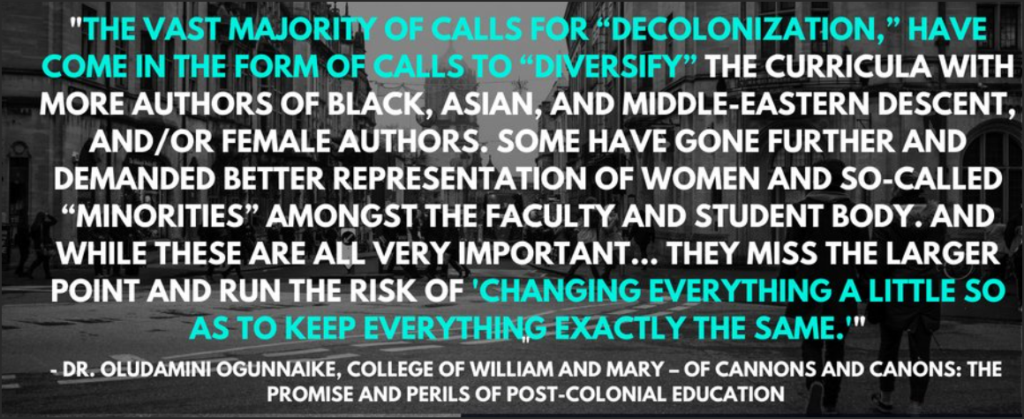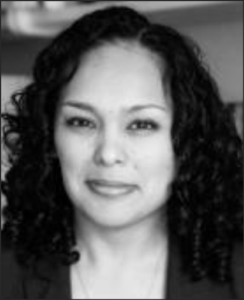
by James A. Bacon
The University of Virginia task forced assigned the job of ensuring that UVa is “welcoming” to all religions includes two faculty members who signed an open letter criticizing UVa President Jim Ryan for failing after the October 7 terrorist rampage afflicted upon Israel to acknowledge the suffering of the Palestinian people.
Ryan denounced Hamas terrorism but declined to take sides in the ongoing conflict between Palestinians and Jews. The task force’s aim, according to the announcement in UVa Today, “will be to understand how Jewish and Muslim students, faculty and staff, as well as those of other religious backgrounds, experience life on Grounds.”
“We want every student, faculty member and staff member to understand that they are a vital part of this place and how profoundly they enrich our common life as we take on that fundamental work of the University,” Ryan said.
The task force is headed by College of Arts & Sciences Dean Christa Acampora. She will be supported by 10 faculty, staff, students, and other members of the UVa community. Christians, Muslims and Jews are all represented. A challenge will be keeping the focus on how Jewish and Muslim students are experiencing UVa without getting infected by the emotional debate over the Israeli-Palestinian conflict that gave rise to the task force.
It is surprising, then, that Oludamini Ogunnaike and Nichole Flores, who are both associate professors of religious studies, were selected. By signing the faculty letter to Ryan, they openly aligned themselves with the Palestinians, who are overwhelmingly though not exclusively Muslim. Whatever their private feelings, no other task force member has publicly committed themselves to one side or the other in such a public way.
The letter, signed by 80 UVa faculty members, mourned Israeli lives lost but demanded that the pain of the Palestinians be recognized as well.
We are so alarmed by approaches to this conflict that do not mention the context in which Oct 7 occurred: in which the Palestinian people have been subject to military occupation, forced into smaller and smaller territories, suffered daily indignities and near continuous losses of basic rights, land, and life. Attacks by Palestinian militant groups upon Israelis have been met with disproportionate violence, destruction, and killings, and the Israeli state is currently imposing collective punishment on all Palestinians in Gaza by refusing to allow water, fuel, and electricity flows into the territory.
The dehumanizing rhetoric towards Palestinians and the threats of extermination that continue to be circulated in Israeli and even US media only serves to justify the retaliatory siege in Gaza and continued bombing campaigns of terror in the West Bank. Moreover, grief over the deaths of Israelis is sadly being politicized and weaponized to kill more people.
Several UVa professors encouraged students to participate in the Students for Justice in Palestine rallies in support of the Hamas attacks. The Jefferson Council cannot ascertain whether Ogunnaike or Flores were among them.

Ogunnaike, who has written extensively about traditional schools of Islamic thought in West Africa, embraces an anti-Western, oppressor/oppressed paradigm. As he notes on his university web page, he also writes about “Decoloniality, Race, and Imperialism.”
In a 2018 essay about the “decolonization” of the curriculum when he taught at the College of William & Mary, for example, Ogunnaike argued that initiatives now described as Diversity, Equity & Inclusion don’t go nearly far enough.
“The vast majority of calls for ‘decolonization,” he wrote, “have come in the form of calls to ‘diversity’ the curricula with more authors of Black Asian, and Middle-Eastern descent, and/or female authors. Some have gone further and demanded better representation of women and so-called ‘minorities’ amongst the faculty and student body. And while these are all very important… they miss the larger point and run the risk of ‘changing everything a little so as to keep exactly the same.’”


On her university web page, Flores says she researches the “constructive contributions of Catholic and Latinx theologies to notions of justice and aesthetics to the life of democracy.” Her research in practical ethics addresses issues of “democracy, migration, family, gender, economics (labor and consumption), race and ethnicity, and ecology.”
The use of the term Latinx,” widely rejected by the mainstream Hispanic community, is a term preferred by politically “progressive” academics. Race, ethnicity and ecology also are preoccupations of the left.
Whatever her politics, however, there is evidence to suggest Flores does tolerate other viewpoints.
In this 2017 article describing her experience of teaching Catholic values in a secular public university, Flores wrote of vigorous debate taking place in her classes during the 2016 election. “Students hotly debated whether abortion should be legal, whether the United States has an obligation to welcome Syrian refugees within our borders and whether the government has a responsibility to care for poor people. Although we discussed matters of public interest, students shared openly their religious and political positions with their classmates in these conversations.”
As I observed in a previous column, I am concerned that leftist oppressor/oppressed thinking will play a role in the deliberations of the task force. In any such reckoning, Israel and Jews are likely to be defined as oppressors. Given the prejudices of the campus left in elite universities, Protestant or evangelical Christians could be as well. A telling sign is a statement in the UVA Today article that the task force will “examine the scope of UVA’s educational offerings related to religious cultures and histories, including histories of religious discrimination.”
It’s not clear how documenting histories of one religion discriminating against another will bridge divides and create a greater sense of belonging at UVa — especially among those who hew to a religion that leftist faculty members deem to have practiced religious discrimination.
I don’t want pre-judge the outcome of the task force, but I’m concerned. The Jefferson Council will keep a close eye on its rhetoric and recommendations. If we see signs of bias against Jews or anyone else, we will keep readers informed.

Leave a Reply
You must be logged in to post a comment.